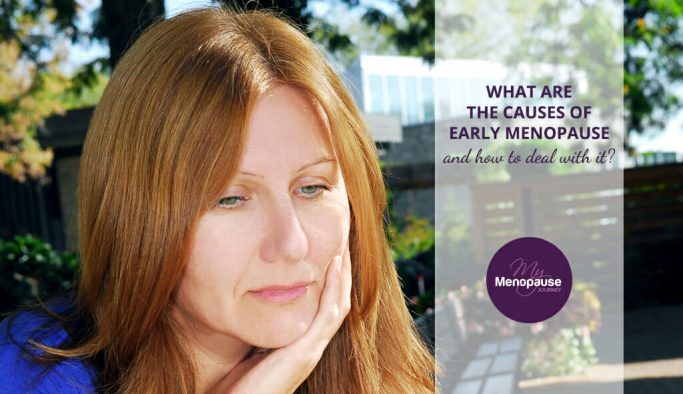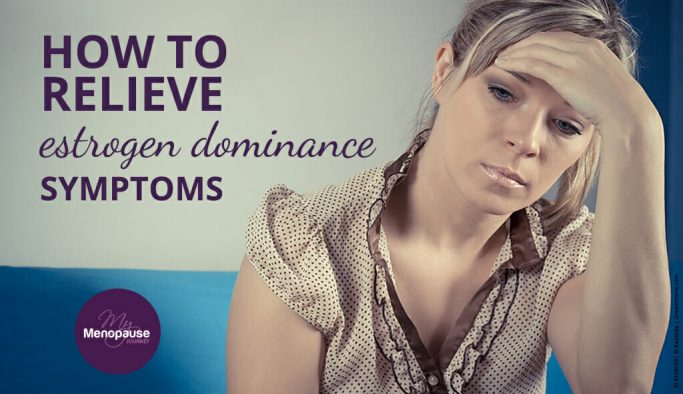We take advantage of everything that life has to offer, food, products and all the pleasurable comforts of life. Not to spoil anything – but do you know that by just accepting everything in, xenoestrogens assault your body in secret?
Xenoestrogens affect menopause in a big way! They are fake estrogens that disrupt hormone balance and worsen menopause symptoms.

The world we live in contains countless environmental estrogens. However, not all of them are bad for us because there are also types that can improve our health.
Let’s figure out what environmental estrogens are, which ones to love and which ones we need to avoid!
What Are Environmental Estrogens?
Environmental estrogens are a group of compounds found in the environment. When your body absorbs environmental estrogens, they will function in a similar way to your endogenous estrogens.
Phytoestrogens or plant-based estrogens are the good types of environmental estrogens. They are also known as dietary estrogens because they can be found in food sources like tempeh, barley, lentils, yams, alfalfa, apple, pomegranate, licorice and more.
Experts say phytoestrogens can help prevent certain types of cancers, maintain heart health, ease menopause symptoms, boost libido and promote weight loss.
The harmful type of environmental estrogens is known as xenoestrogens. Xenoestrogens, otherwise known as fake estrogens or estrogen mimickers, disrupt the functions of your hormone-producing glands. As a result, you experience hormonal imbalances and deficiencies.
These synthetic hormones are found in processed and commercial food items. They are also in the beauty and personal care products we use every day. In the next sections, you’ll find out how xenoestrogens affect menopause and the common xenoestrogens you can find in the products you buy.
Before that, let’s get to know the friendly type of environmental estrogens!
The Friendly Type of Estrogen: Phytoestrogens
If your estrogen levels are low or you have a full-blown deficiency, you’ve got a friend in the good type of estrogen called phytoestrogens.
Phytoestrogens or plant-based estrogens are weaker in form and function. But don’t think less of this type of estrogen!
With adequate consumption of phytoestrogen-rich foods, you can supply your body with enough estrogen throughout the menopause transition. Phytoestrogens also help your body stimulate estrogen production, which can further ease menopause symptoms.
Phytoestrogens have three variations:
- Isoflavones – the most abundant phytoestrogen. A well-known example of isoflavone-rich food is soy. Most herbal and natural estrogen supplements have isoflavone in their list of ingredients.
- Lignans – the second most common type of phytoestrogen. You can get lignans from flax seeds, sunflower seeds, pumpkin seeds, barley, berries and cruciferous veggies.
- Coumestans – the least common type of estrogen. You can find coumestans in Mung seeds. In most foods that have phytoestrogens, only 1% of coumestan is present.
Phytoestrogens are weaker forms of estrogens; hence, they rarely cause any problems in hormone balance. Besides, they are also easy to flush out, so if you have excess phytoestrogens, they can’t linger long in your body. Check out this general list of high natural phytoestrogen sources!
- Flaxseeds
- Soybeans and soy products
- Tofu
- Tempeh
- Miso paste
- Sesame seeds
- Black bean sauce
- Miso soup
- Hummus
- Garlic
- Dried apricots
- Alfalfa sprouts
- Pistachios
- Dried dates
- Sunflower seeds
- Chestnuts
- Dried prunes
- Olive oil
- Walnuts
- Almonds
- Cashews
- Winter squash
- Green beans
- Collard greens
- Broccoli
- Cabbage
- White beans
- Peaches
- Red wine
- Strawberries
- Mung beans
Man-made Estrogens and How They Affect Your Health
Man-made estrogens or synthetic estrogens are products of chemical combinations. For this reason, xenoestrogens can be potent and stimulating for your hormone-producing glands. They also block receptors so your hormones can no longer enter specific organs and perform their functions. As a result, you get a hormonal imbalance and a whole host of symptoms.
There are two types of man-made estrogens:
- Xenoestrogens are estrogens found in products like household cleaners, sprays, pesticides, plastics, shampoos and cosmetics. Xenoestrogens affect menopause by blocking your ovaries and adrenal glands to produce sex hormones. These estrogens also bind with your receptors and hyperactivate organs causing major problems and exacerbating menopause symptoms.
- Genetically Modified Organisms (GMO) are found in the majority of processed and commercial food that we buy. They can be in grocery bought tomatoes, potatoes, donuts, milk, meat, name it, and they may have GMOs!
You can avoid xenoestrogens and GMOs by checking products for their contents. Before buying any products, read labels and see if these chemicals are in the ingredients.
- Pesticides containing DDT and dieldrin.
- Non-stick cookware that has perfluorooctanoic acid (PFOA). When subjected to heat, PFOA may seep into your food.
- Plastic food containers that have bisphenol-A.
- Cosmetics or personal care products containing phthalates.
Plenty of fruits and veggies are now artificially manipulated, so it’s hard to pinpoint which ones are GMOs or not. So, what’s it going to be? Do we need to ditch our fruits and veggies?
Nope! Instead of buying preserved and grocery-displayed fruits and veggies, you can switch to organic and naturally grown fresh produce. Look for and choose GMO-free products as much as possible!
Dr. Taylor or better known as Menopause Barbie, talks about xenoestrogens in this video [22:14]:
How Do Xenoestrogens Affect Menopause?
In many studies, xenoestrogens can alter the normal functioning of your endocrine system. The endocrine system controls and regulates the secretion of all your hormones, including estrogen.
Xenoestrogens have two effects on the body:
- They interfere with the communication loops in the brain, pituitary gland and thyroid glands and copy natural estrogen actions. As a result, this triggers body organs with estrogen receptors to respond.
- Xenoestrogens bind to estrogen receptors and block the action of your natural estrogen.
Also, xenoestrogens put you at risk for estrogen-sensitive cancers. For example, estrogen pumps up breast cell growth. Long-term exposure to estrogen without rest may increase the risk of breast cancer.
Knowing how xenoestrogens affect menopause, you have to take a proactive approach to eliminate these fake hormones in your body.
The first step is to look over your life. Do you follow a healthy diet? What products do you use?
It’s best to go organic and natural as much as you can!
Get a detox once in a while too, and learn how to balance your hormones.
References:
energeticnutrition.com/vitalzym/xeno_phyto_estrogens.html
web.archive.org/web/20201025163920/https://community.breastcancer.org/blog/for-our-mothers-and-others-environmental-estrogens/
superfoodly.com/estrogen-foods-list-50-high-phytoestrogen-sources/
niehs.nih.gov/health/topics/agents/endocrine/index.cfm
nrdc.org/stories/9-ways-avoid-hormone-disrupting-chemicals
draxe.com/health/endocrine-disruptors-how-to-avoid-excess-estrogen/
👉 What to Do Next
Don’t go just yet — especially if you’ve been feeling off and no one’s given you real answers.
Go to the START HERE page.
It’s where things begin to feel clearer. No more second-guessing, no more sorting through conflicting advice. Just calm, honest support for where you are right now.
And if you haven’t yet, download the FREE GUIDE.
It’s quick, clear, and made to help you feel better — without having to turn your whole life upside down.


Gita is the founder of My Menopause Journey. Since 2014, she has been supporting midlife women by sharing hard-earned learnings from her own experience. To advance her knowledge, Gita puts a lot of her time and effort into understanding the broad spectrum of women’s health. She immerses in extensive research about the physical, mental and emotional aspects of menopause. Gita believes in the life-changing power of healthy, holistic living — this is where she anchors her message to all women. Learn more about her marvelous mission in About us - My Menopause Journey.






